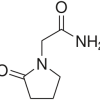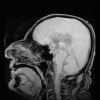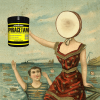I'm quoting myself from another thread I just starting, realizing that it instead belongs in this thread:
I get really positive effects from uridine (both TAU and UMP), but get quickly tolerant at least to the subjective effects. The first day is great, and second day pretty nice, but the third day and after I don't really notice a difference. Despite, the tolerance, I tried taking it for several weeks to see what would happen, but still nothing significant occurs and I end up feeling that this supplement is only good for me to take once-in-awhile as a treat, counter to the regime approach that it's usually used as. Does anybody else get tolerance to uridine? Is there a way to counteract this tolerance?
same here, I do not really think there is a way to counteract the tolerance that Uridine gives you. It releases a good amount of dopamine at first and you get a good feeling, but there is a ceiling of how much dopamine is getting released and every day you get a lower and lower amount towards homeostasis. Even if you over time you are above baseline you do not pay attention to it, as the sudden unusual increase in dopamine release is what gives the subjective feeling that something is going good right now. Do you get any side effects with continual use or larger doses?


























































